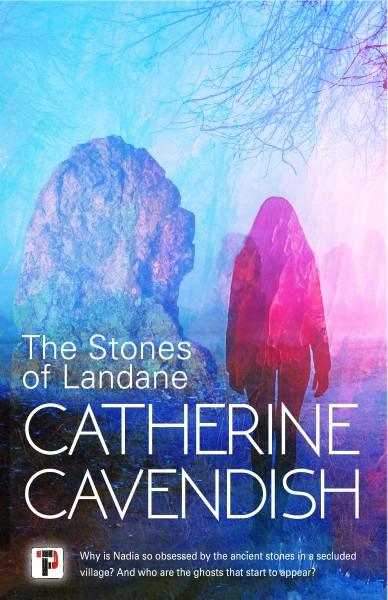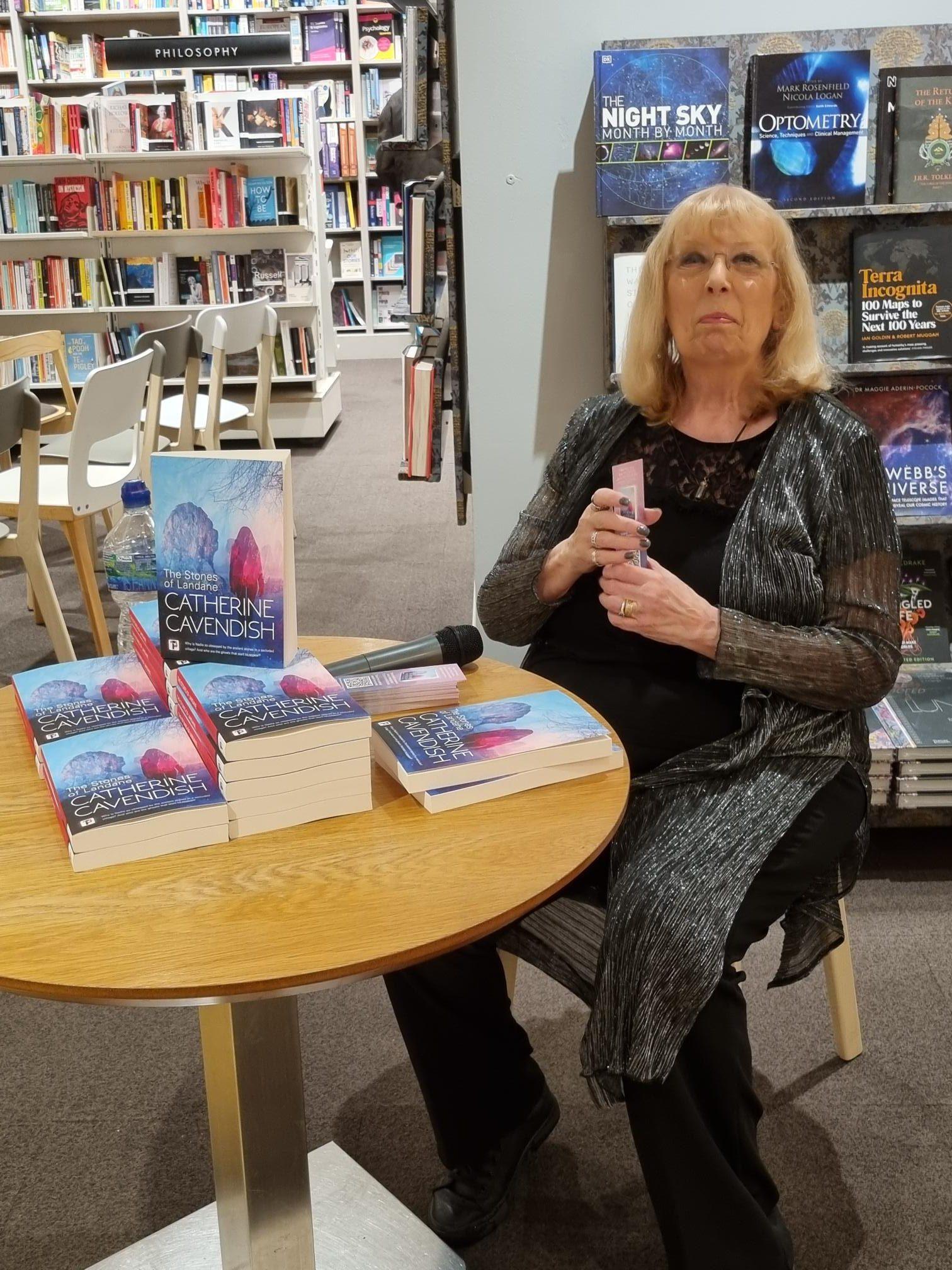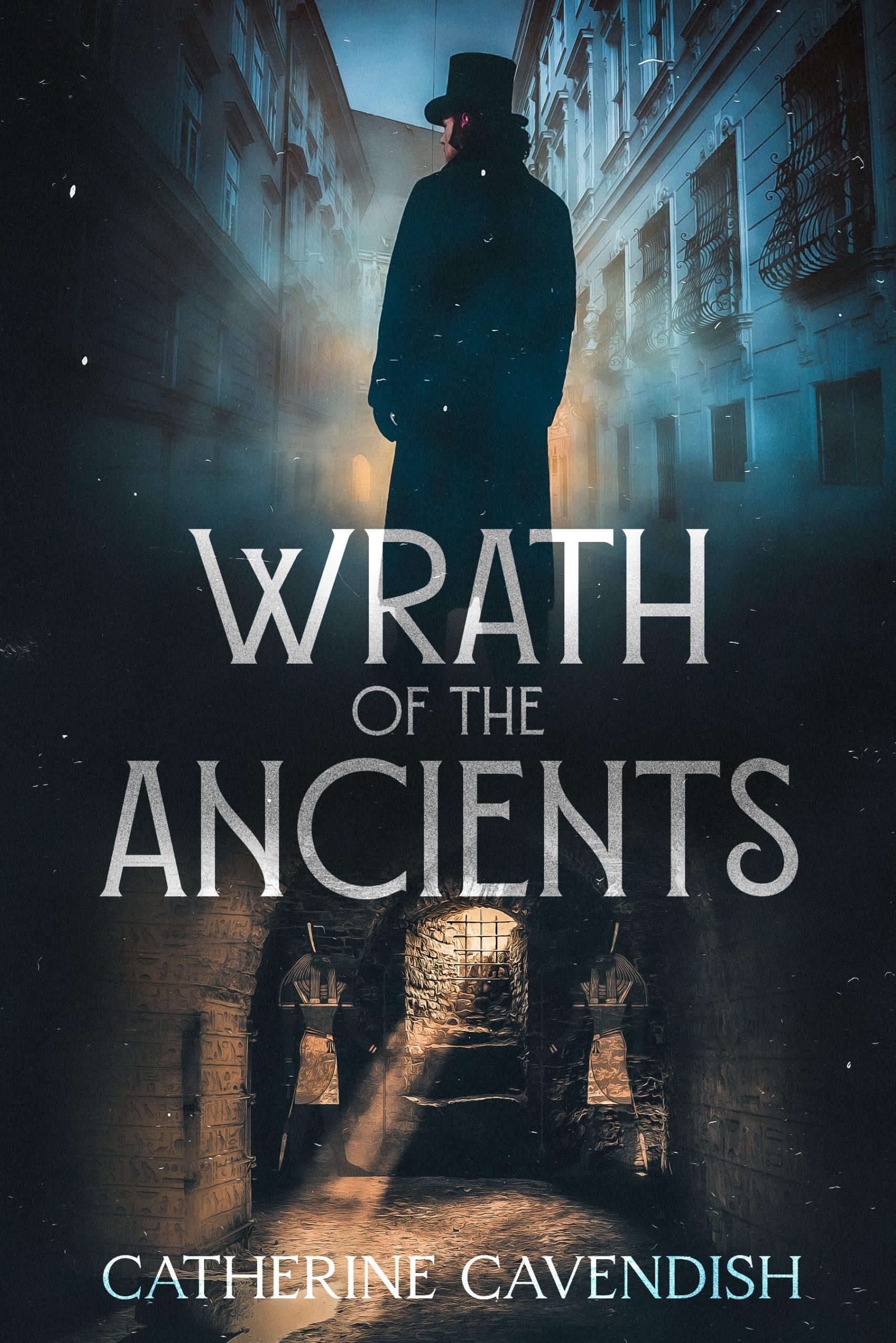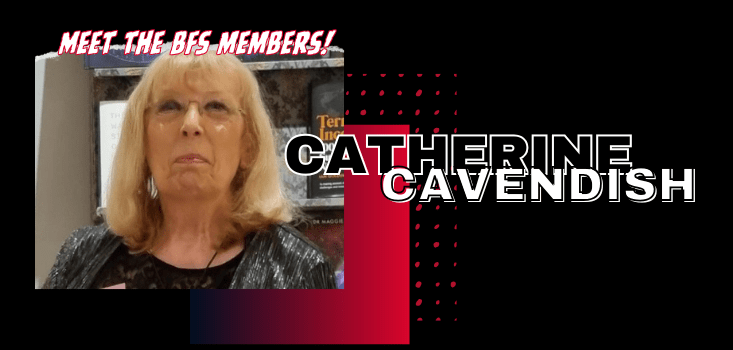Every Friday, we meet a member of the BFS and peer deep into their soul (or, at least, a form they filled out). Want to be featured? Email us: online@britishfantasysociety.org
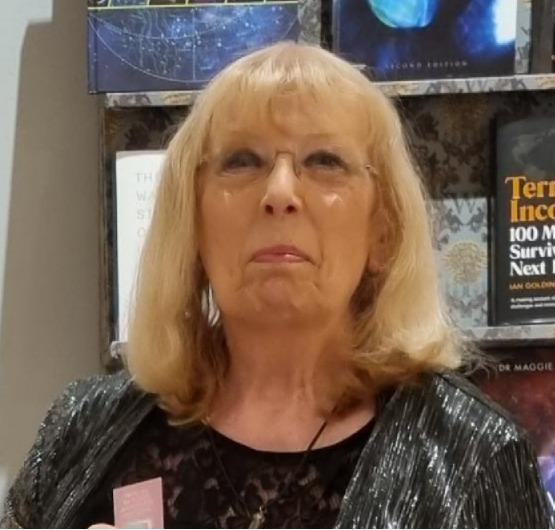
Name:
Catherine Cavendish (she/her)
Which region are you based in?
North West
If you write, which genre:
Horror
Are you drawn to any specific SFFH sub-genres?
Gothic, haunted house, witchy, supernatural, folk horror
Your influences
Tell us about the book/film/thing that got you into SFFH: What was it? How old were you? What impact did it have on you?
The Monkey’s Paw by W.W Jacobs started it all. I think I was around eight at the time. It scared me rigid, played on my mind and set me up for a lifetime of scary stories.
This was swiftly followed by Wuthering Heights which I first read when I was far too young to really appreciate it, but the landscape was familiar to me as I grew up in a Pennine town not far from Haworth so it resonated with me. I read and re-read it over the years – and still do to this day. It is a true gothic novel with emotions set at the highest level, ghosts, nightmares, forbidden love, revenge… Classic in every way.

How does that early influence show up for you (in life / writing / agenting / publishing / editing / reading) now?
I love to read/write stories that play on the mind. Psychological conundrums, twisted endings, stories that allow your mind to explore scary scenarios and to imagine there really are dark things happening in the shadows. All this stemmed from that one short story, published in a school edition of all sorts of stories, essays and poems that, in some cases, probably wouldn’t be allowed for that age group these days but it stimulated my imagination, brought me into contact with Emily Bronte’s classic novel and the rest is history. Wuthering Heights built on this and added more layers of scariness, ghostliness…and revenge. All of these attributes can be found in my stories.
Where do you draw your creative inspiration from?
Atmospheric places (Vienna and the Yorkshire moors are key here), chance conversations, people-watching. Inspiration can come from anywhere and everywhere in my experience. You just have to open your eyes and ears (along with other senses as applicable) and let your imagination do the rest. A notebook helps, or recording onto some device or other, so you don’t forget!
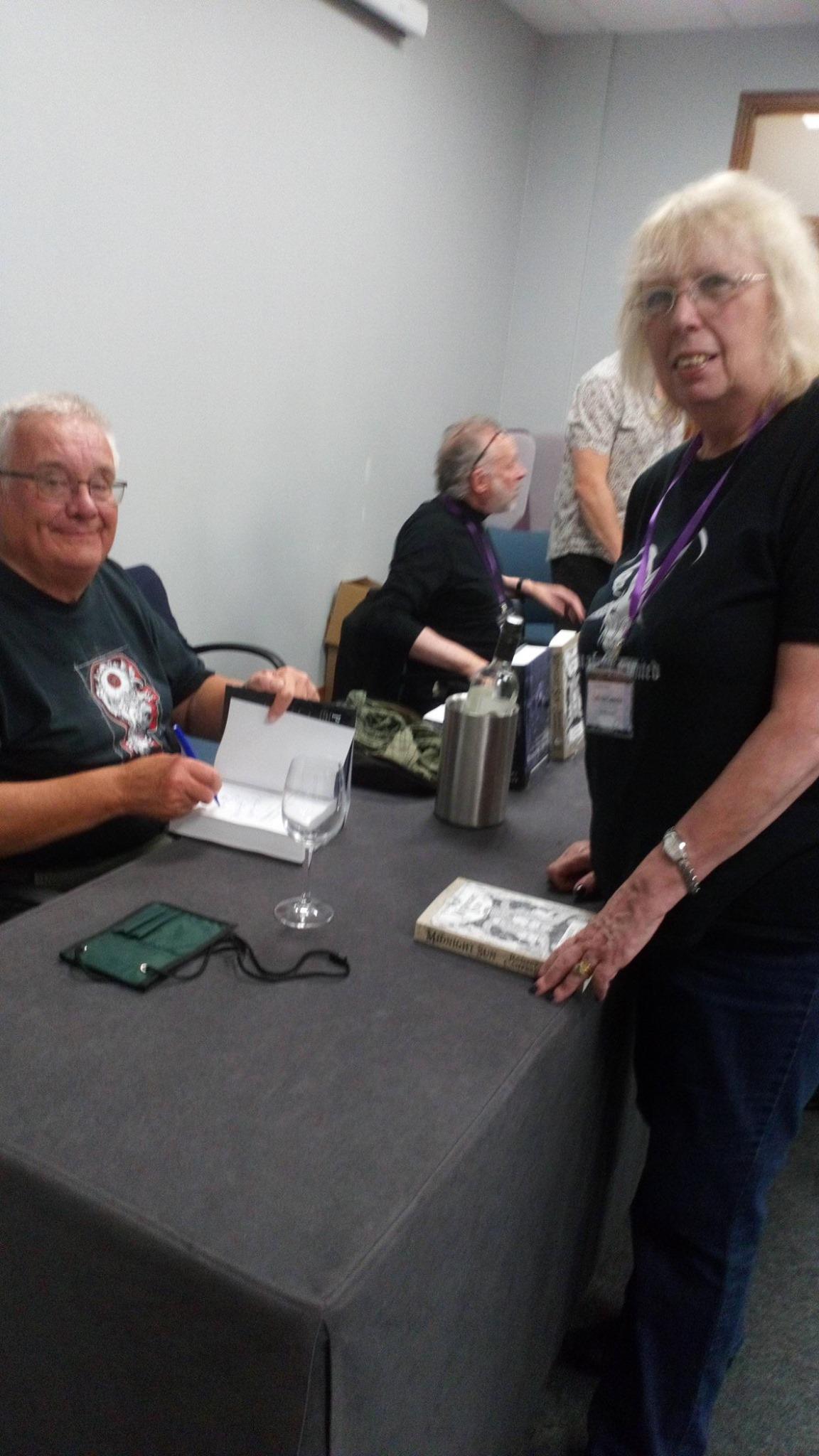
Who do you look to as a genre hero? Why?
There are a few, but Ramsey Campbell is right up there at the top of my list because he writes what I aspire to write and he inspires me to continually strive to improve and develop my storytelling. (Pictured: Cat with Ramsey)
Your Work
You’re stuck in an elevator for 60 seconds with that hero, and they want you to describe your work. Give us the pitch.
I write about the gothic and ghostly, about strange things happening to ordinary people, where shadows conceal your worst nightmares and nothing is quite as it appears to be. And I love twisted endings that allow your imagination to flow beyond the last page.
What are you working on right now?
A novel set in Vienna. There are witches. There is supernatural horror. The German word for witches is Hexen and, as my unfortunate main characters discover: The Vienna Hexen may be a myth to frighten your children into behaving, but they are more than mere folklore – and betrayal and vengeance are all the fuel they need to thrive.
Thinking about all the stories/work you’ve done, what sticks out most in your mind? Why?
In Darkness, Shadows Breathe is in some ways my most personal. I had recently fought a particularly rare form of cancer and in this novel, one of the two main protagonists is fighting a similar battle. Of course, in addition to the stuff I had, she also has supernatural, demonic forces to contend with.
Where and when do you create/are you at your most creative?
I write mostly in the afternoons when I have completed the business part of writing and can immerse myself fully in the creative process, free from too many distractions.
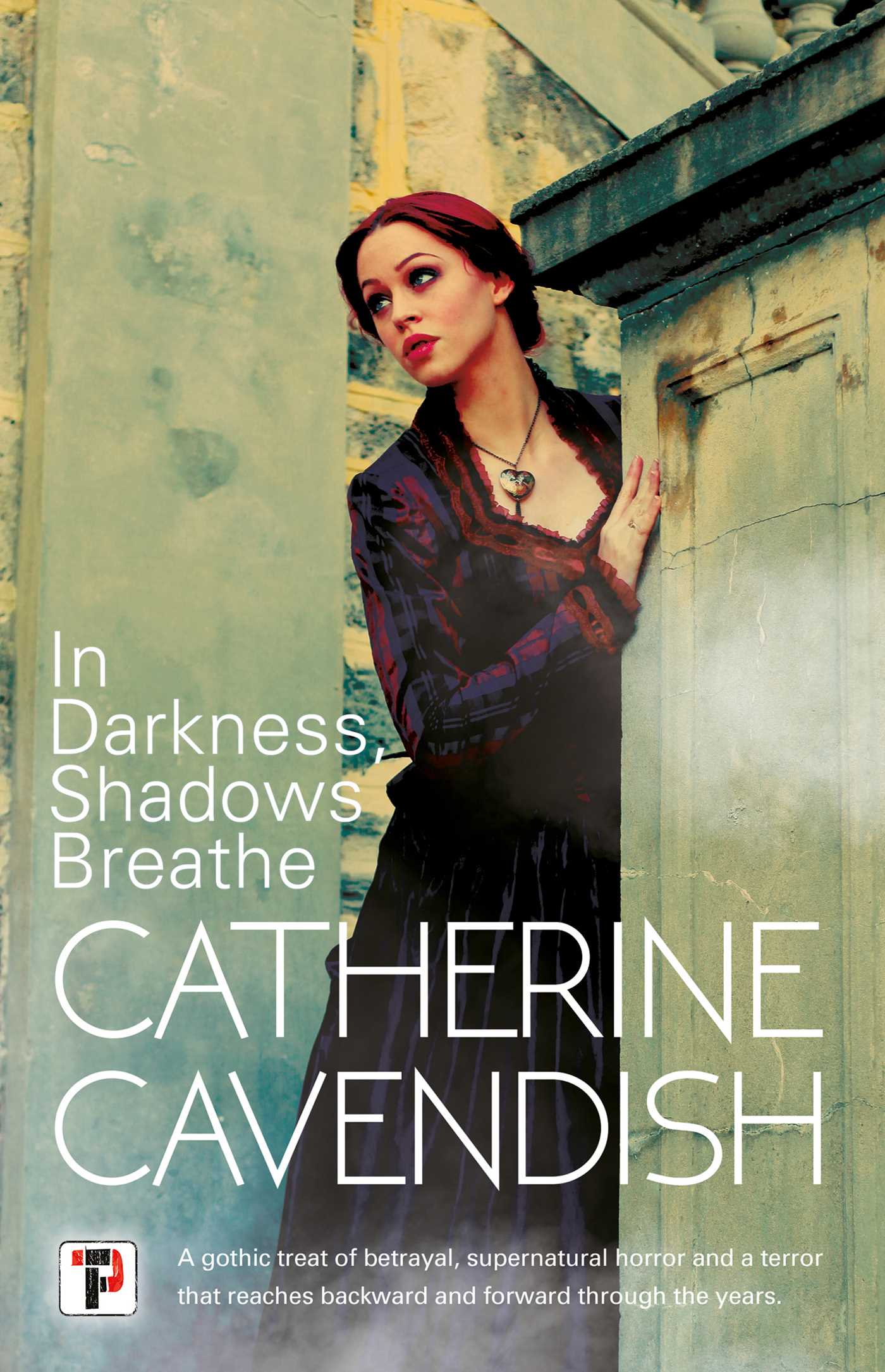
What’s the best advice you’ve received about creativity?
Just do it. Don’t agonise over it. If what you create turns out to be rubbish you can always chuck it out later.
What’s your writing soundtrack?
When I’m writing, I find extraneous noise and music very distracting – except in certain specific circumstances such as when I was writing about Cornwall and wanted the sound of waves crashing against rocks and gulls crying overhead, and another time I was writing about a haunted grandfather clock and wanted the deep resonant ticking in the background, so in each instance, I downloaded a soundtrack and played that.
When I am working on a novel, I will try and immerse myself in the time and place where the story is set. This means I will be mostly listening to the music of the period (where this is possible), reading books about the period/people in history and novels written at the time, and watching relevant films, documentaries and so forth, but I do this outside of actual time spent writing. I do however bring it all with me in my head so that it influences the characters I create and how they speak/act and so forth. With that in mind, I sometimes create playlists on Spotify but again, these are played when I am not writing.
When I wrote The After-Death of Caroline Rand, partially set in the late 1960s, the playlist featured artists such as Jefferson Airplane, Paul Revere and the Raiders, The Monkees, The Mamas and the Papas and so on. It would have featured Joni Mitchell (for Ladies of the Canyon especially) but she has decreed that all her stuff is taken down from there.
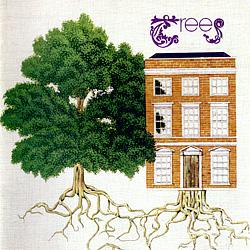
Those Who Dwell in Mordenhyrst Hall is mostly set in 1928 and its soundtrack features Noel Coward, while The Stones of Landane is much more folky – Clannad’s Newgrange is on there, along with other songs inspired by stone circles and also The Garden of Jane Delawney by Trees (pictured) because author Daniel Church told me that when he read the part of the story where I feature a fictional band called Petra’s Magic Garden, he was instantly reminded of this song. My playlists are in the public domain on Spotify, grouped under their individual book titles, if you want to check them out at all.
The Quick-fire Round
Sci-fi, fantasy or horror?
Horror
Quiet or loud?
Quiet
Dark or light?
Dark
Strict lines or genre blend?
Genre blend
Awards or bestseller?
Bestseller
Fiction or non-fiction?
Both (you can’t make me choose!)
Poetry or prose?
Prose
Plotter or pantser?
Pantser
Reading or listening?
Reading
Notebook or computer?
Computer (but I always have a notebook to hand)
Favourite SFFH book of all time?
Wuthering Heights, Emily Bronte’s classic gothic, ghostly story has inspired me since I was a child. Some people don’t put it in this category but to me it has all the hallmarks of gothic horror as does her sister Charotte’s incredible Jane Eyre.
Last book you read?
The Sound of the Dark by Daniel Church – riveting folk horror set in Pendle witch country.
Any SFFH author on auto-buy?
Ramsey Campbell, Russell James, Daniel Church, J.H. Moncrieff, P.D. Cacek, Gaby Triana… The list keeps growing.
Favourite podcast?
I don’t have one!
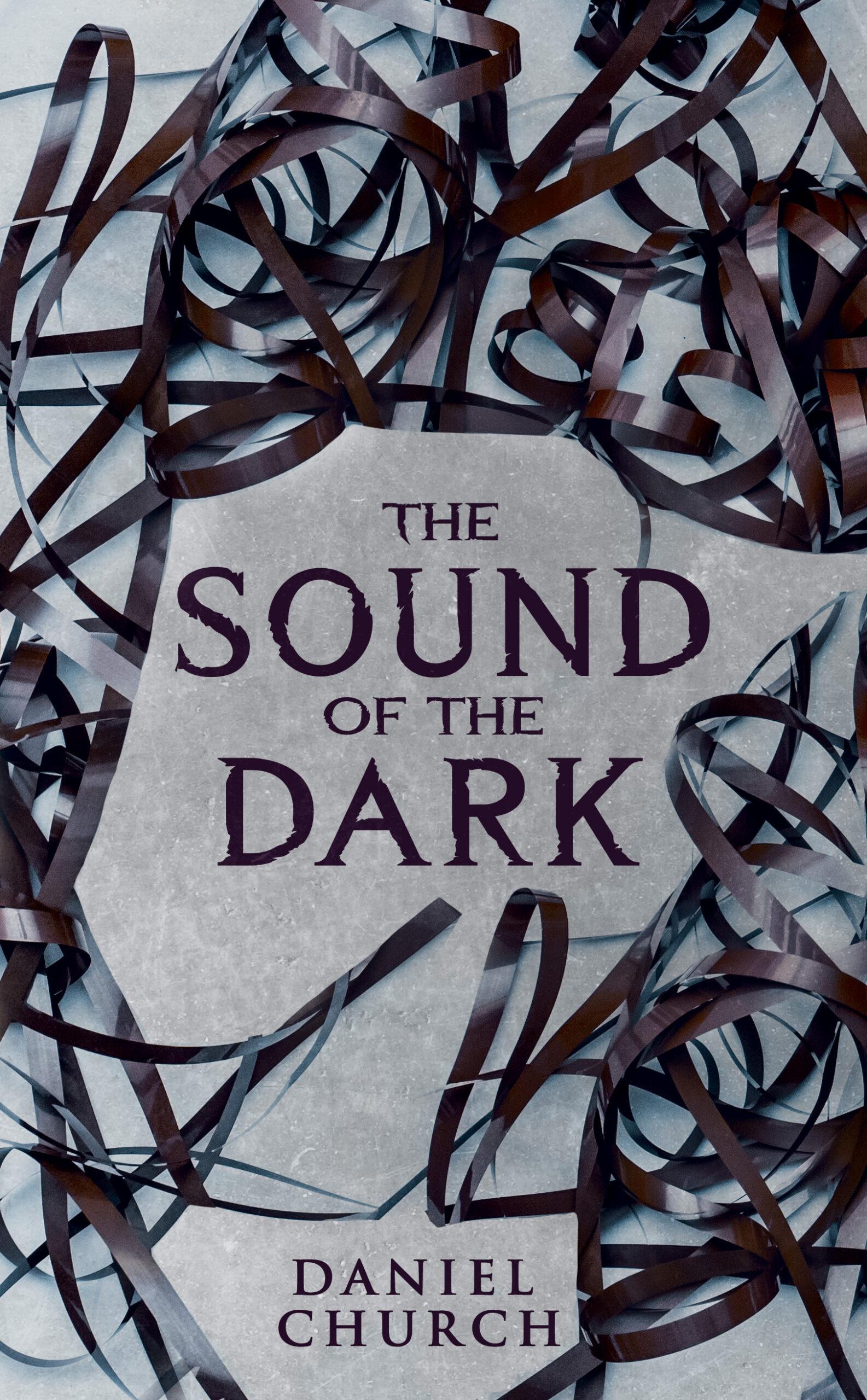
The Home Stretch
What’s the best thing about being part of the SFFH community?
The feeling that you’re not the only crazy person in the world.
Time to plug your stuff! Where can we find you and your work? What have you got coming up? Consider this your advertising space.
My latest novel is The Stones of Landane (published by Flame Tree Press). Also, my Nemesis of the Gods trilogy is being reissued in its three component parts by Crossroad Press, starting with Wrath of the Ancients which is out now in ebook and paperback. The next two volumes, Waking the Ancients and Damned by the Ancients will follow soon.
A brand-new novel from Flame Tree – Ghosts of Chanterlands – is scheduled for release in 2026.
I can be found all over the internet, so, here’s the link to lots of places: https://linktr.ee/catcavendish
